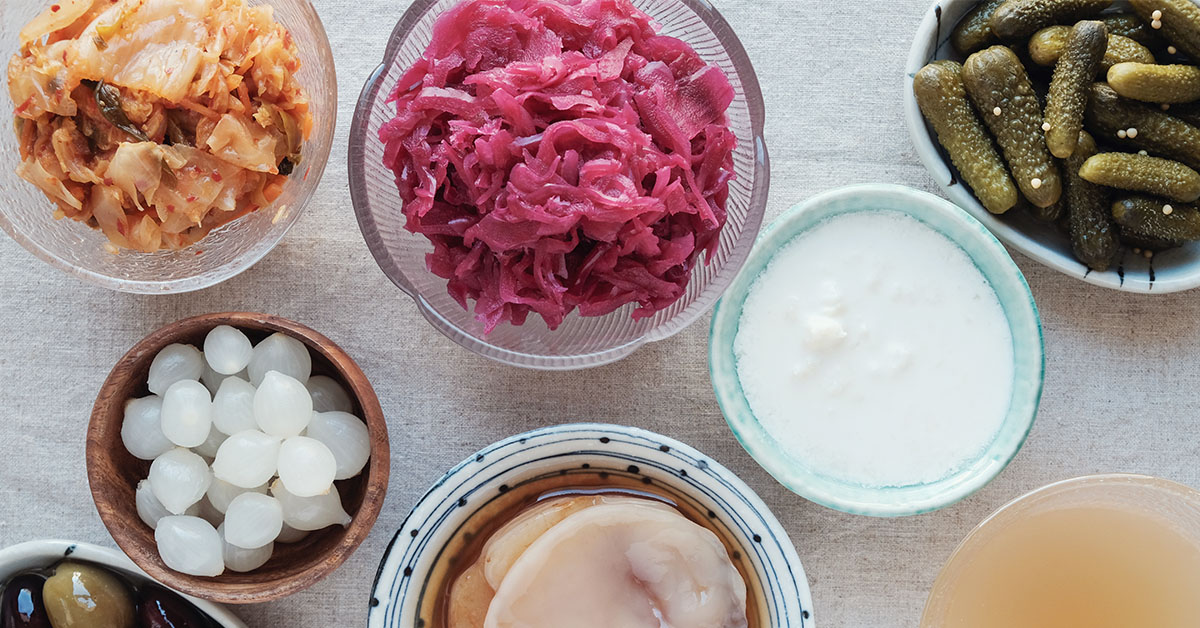
Probiotics: Does everyone need them?
There’s a new food trend that’s taking off and food industry experts say you’ll be seeing more of it – probiotic-enhanced foods. These are foods that have live microorganisms added to provide possible health benefits. Food producers are starting to put them in items such as ice cream, coffee, tea, soups and even beer.
And then there’s the explosion of over-the-counter products that can help balance the natural bacteria in your body. So it begs the question – should everyone be taking probiotics like a multi-vitamin or at least be seeking out foods rich in them?
What are probiotics?
Probiotics are live bacteria that are important to maintaining good gut health and a strong immune system.
If your gut is less than healthy, you may begin to experience increased sensitivity to certain foods in addition to gastrointestinal issues like bloating, gas or diarrhea.
Should you take a supplement?
Not sure what’s right for you?
Jamie Robbins, director of Dietary Services at OSF HealthCare Holy Family Medical Center in Monmouth, Illinois, said there’s nothing wrong with average, healthy adults taking a probiotic. But since there are hundreds of strains of probiotics, an over-the-counter probiotic might not help if you are experiencing a specific problem such as chronic diarrhea or bloating.
“Not everything is clear cut. They have some recommendations where this strain might help with this problem, but you have to be a smart consumer and look up those studies to see what strain is best for the particular problem that you are trying to solve,” Robbins said.
Over-the-counter pill forms can also be expensive. A survey of options of some top-selling probiotic supplements show they range in price from $20 to just under $30 for a two-month supply.
And, researchers have not definitely confirmed the health benefits of taking probiotic supplements for a healthy person who eats a balanced diet.
Robbins advises seeking medical advice before taking any over-the-counter probiotics.
“If you’re having a particular problem, I would consult your physician. They would be able to recommend a certain type of probiotic that would have the certain strain of bacteria that could help you with your problem.”
How to keep your gut healthy
People who eat highly-processed and fatty foods won’t feel any better by simply taking a probiotic supplement, Robbins said. Eating a healthy diet is the best way to maintain healthy flora in your digestive track.
You should include foods like:
- Cottage cheese
- Dark chocolate
- Kefir
- Kimchi
- Kombucha
- Miso soup
- Pickles
- Sauerkraut
- Sourdough
- Yogurt
“If you’re consuming the live, active cultures and you’re also consuming a healthy diet of fruit and vegetables and whole grains, that’s the best case scenario to improve the gut flora,” she said.
You can also improve your gut flora by eating prebiotics. They act as food for the probiotics already in the digestive system. They include foods like:
- Apples
- Asparagus
- Bananas
- Barley
- Edamame
- Garlic
- Mushrooms
- Oats
- Wheat bran
- Root veggies such as onions and leeks